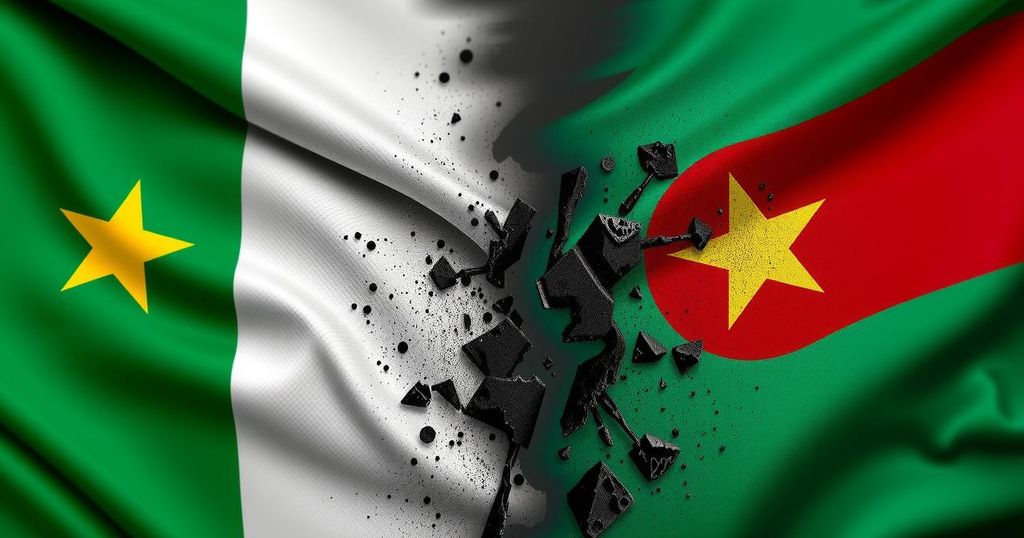The diplomatic tension between Somalia and Ethiopia intensified with Somalia’s expulsion of an Ethiopian diplomat for alleged interference in its domestic affairs. This incident follows prior expulsions and underlines a pattern of escalating confrontations tied to Ethiopia’s agreements with autonomous regions. Somalia is fortifying alliances with countries like Egypt and Turkey as part of its strategy to protect its sovereignty against Ethiopian influences.
The recent diplomatic tensions between Somalia and Ethiopia have escalated, culminating in the expulsion of a senior Ethiopian diplomat by Somalia’s Foreign Ministry. On Tuesday, Somalia declared Ali Mohamed Adan, a counselor at the Ethiopian embassy in Mogadishu, persona non grata, citing his involvement in activities deemed incompatible with his diplomatic duties. The Foreign Ministry’s statement asserted that his actions infringed upon the Vienna Convention on Diplomatic Relations, which obligates diplomats to adhere to the laws of the host country and refrain from interference in domestic matters. This latest diplomatic incident follows a series of confrontations between the two nations. Earlier in April, Somalia expelled the Ethiopian ambassador and closed Ethiopian consulates in the regions of Somaliland and Puntland, alleging similar violations of sovereignty. These actions coincided with Ethiopia’s expanding relationships with Puntland, a self-governing entity in Somalia that recently declared its non-recognition of the federal government, as well as with Somaliland, which has sought greater autonomy since separating from Somalia in 1991. Despite Ethiopia’s deals with these breakaway regions, which include military access to Somaliland’s coastline, Somalia has responded by strengthening its security alliances with neighboring countries such as Egypt and Turkey. Egypt has augmented its military support to Somalia, sending defense equipment amid ongoing tensions regarding the Grand Ethiopian Renaissance Dam and its implications for Nile River water distribution. Moreover, a summit between Egypt, Eritrea, and Somalia indicated a collective stance in support of Somalia’s sovereignty against external infringements. Turkey, which has significant interests in Somalia, has also increased its military presence and engaged in peace talks aimed at reconciling the tensions between Somalia and Ethiopia. Despite these efforts, progress in negotiations has stagnated, underscoring the complexities of the rift in the Horn of Africa.
The strained relations between Somalia and Ethiopia stem from historical grievances and differing political objectives, particularly in the context of regional autonomy movements. Ethiopia’s recent agreements with self-declared independent regions such as Somaliland and Puntland have been perceived by Somalia as direct violations of its sovereignty. The broader geopolitical landscape is further complicated by involvement from external powers like Egypt and Turkey, each with vested interests in the region’s stability and resources. Thus, the rift not only reflects bilateral issues but also engages a wider array of regional and international dynamics that influence security and diplomatic efforts in the Horn of Africa.
In summary, the diplomatic strife between Somalia and Ethiopia has reached a critical juncture, marked by recent expulsions of diplomats and increasing allegations of interference. As Somalia escalates its security collaborations with regional allies against perceived Ethiopian encroachment, the situation remains precarious. Efforts for reconciliation, despite international mediation, have so far produced little progress, leaving the rift unresolved and potentially deepening divisions within the Horn of Africa.
Original Source: www.al-monitor.com







